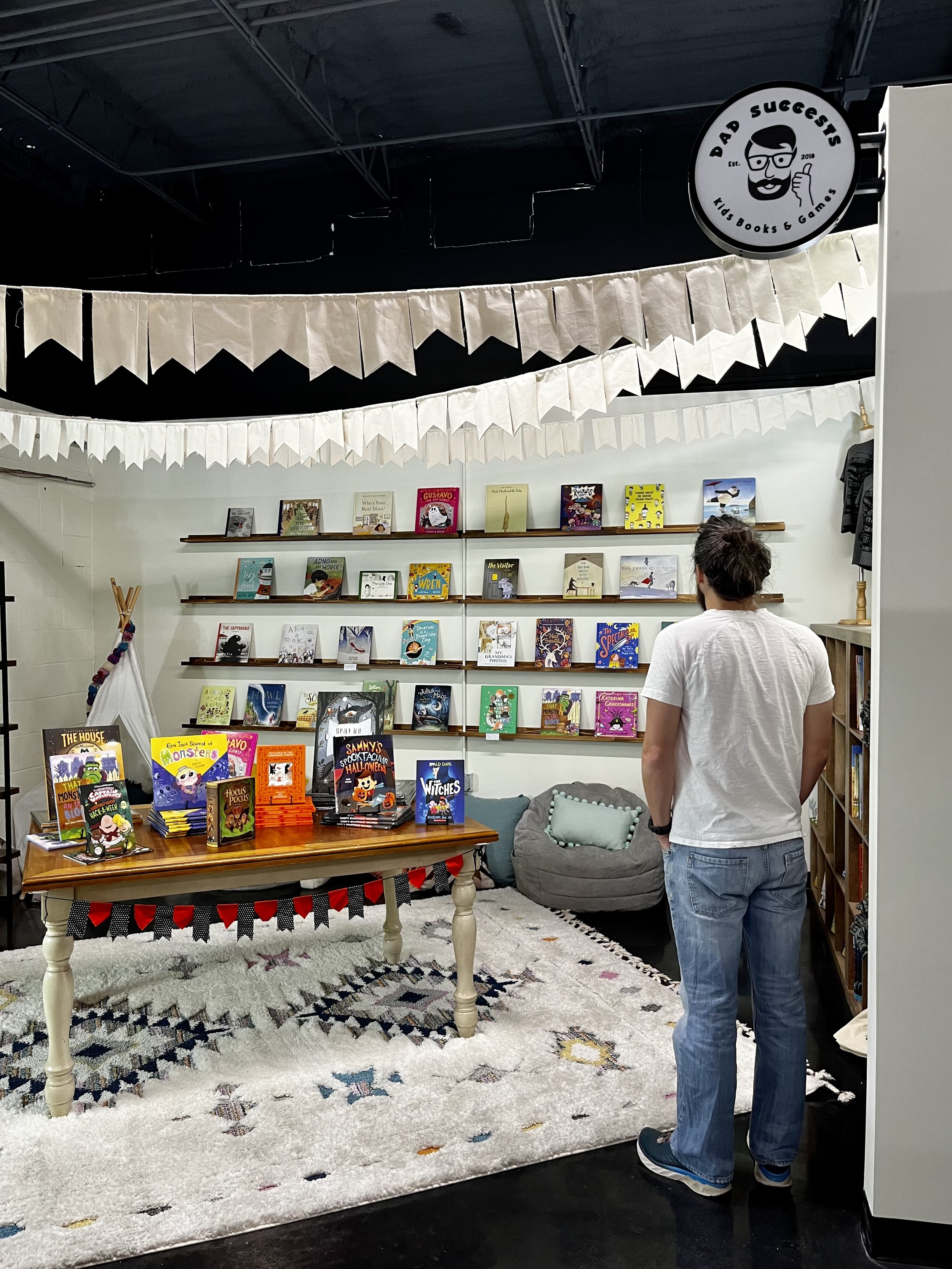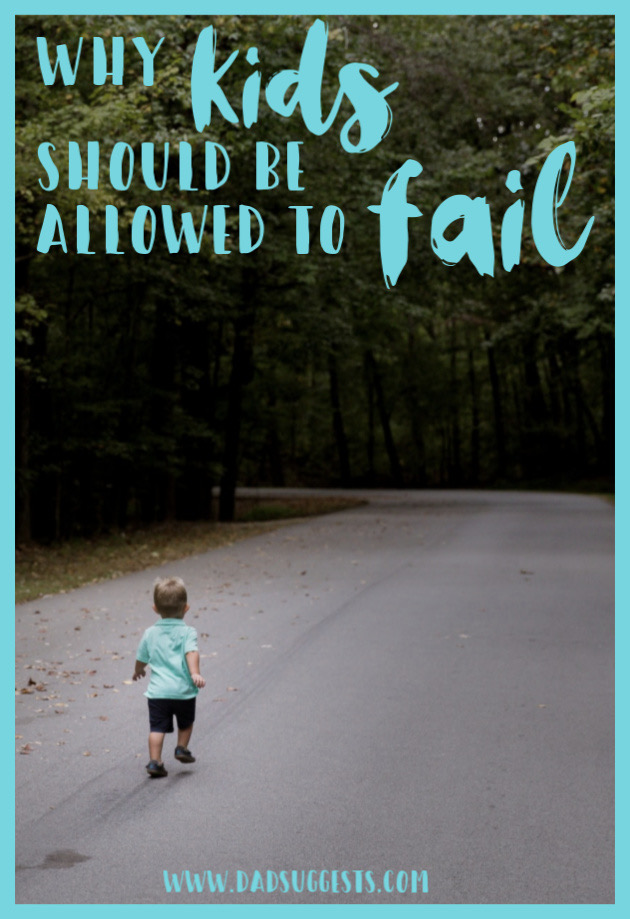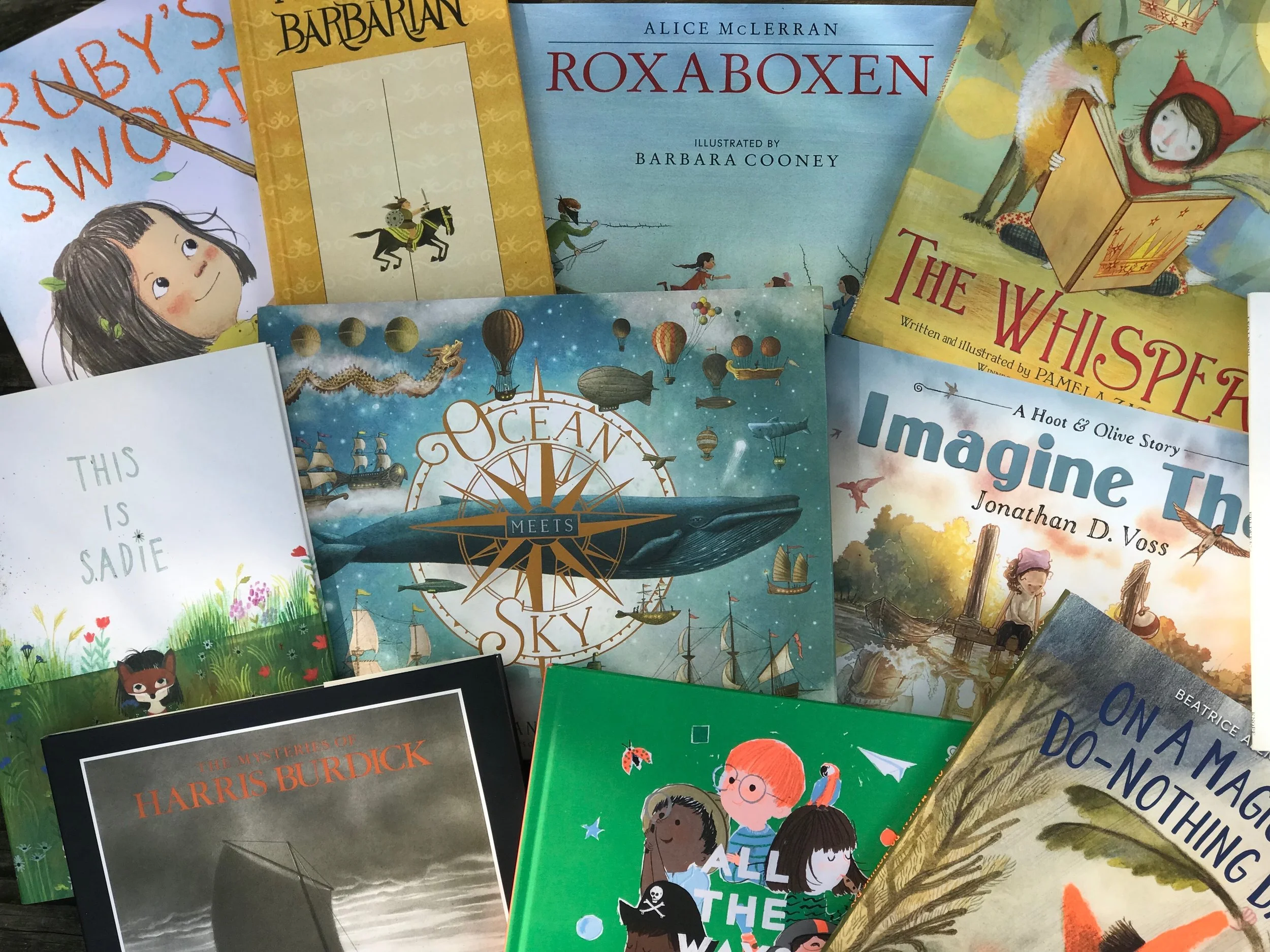Why Failing Is Good For Kids
Both of our kids are currently taking an ice skating class. Our son is 6 and our daughter is 3, and they’re both just learning how to skate for the first time. They both really enjoy it, and the whole thing is adorable. They’re learning about persistence, and they both quickly figured out that it’s really not that scary to fall down. They just push themselves back up on their skates and keep going.
But there’s another kid in our 3-year-old’s group who is not having a good time at all, and it really bums me out. He’s also skating for the very first time, and his parents already have him decked out in full hockey gear. It’s pretty adorable to see a 3-year-old in full hockey gear, but it’s probably not ideal for learning how to skate - and it’s obviously kind of getting in the way of his mobility. Basically he’s falling down about every 10 seconds.
The surprising thing is, it’s not the falling down that’s making him have a bad time. Believe it or not, it’s actually the reaction of his parents to his falling down. And that’s the part that seriously bums me out. His mom would snap at him every time he fell - “Get up! You’re doing that on purpose!”. This was his first day skating in his life. And, after this, I noticed as the weeks passed by that he would look over to his parents to see if they were mad every single time he fell down.
I wanted to share this depressing story because I think this incident is a microcosm of our society. I’ve been reflecting on our role as parents to build up our kids’ confidence - and how to minimize their anxiety. And, unfortunately, this sad story is by no means an isolated incident. We have a culture that’s overly focused on success - and an epidemic of kids terrified of failure.
Why Kids Are Scared of Failing
Kids are scared to fail because of us. Period. It’s our fault. You aren’t born being scared to fail. It’s a learned reaction - like the poor kid in our skating class that learned very quickly that falling down is something to feel ashamed about.
But it’s important to note that overtly bad parenting (like scolding your kids for falling down) isn’t the only culprit. Even parents and teachers with completely benign intentions can feed this epidemic completely unwittingly. Collectively we put far too much pressure on kids to perform so we can celebrate their achievements and call them smart and talented.
As a general rule, far too much of the praise and adoration we bestow upon our kids is tied to some sort of athletic or academic achievement - both in school and at home. And, if those achievements seemingly unleash the pinnacle of our love, how do we expect them to feel about failing?
Trust me, society is not teaching kids that it’s okay to fail. From the high-stakes testing in schools to the parents at home who only care about touchdowns and report cards - everything is very results oriented. We’re obsessed with success, and we’re completely ignoring the journey. At the end of the day, it’s easy to miss the big picture in life.
Fail has become a true 4-letter word for kids - and the anxiety is palpable. That’s why it’s so important that parents are very explicit in telling their kids that it’s okay to fail - and also explaining why it’s okay.
Why Kids Are Losing Their Persistence
It’s also important to note that kids can very easily lose their persistence these days too. And it’s actually very much tied together with a fear of failure. It’s a byproduct of our instant-gratification society - and it’s worth paying attention to how it can affect your kids psychologically.
The most basic and tragic manifestation of this problem is when kids quit or avoid an activity altogether because of their fear of failure. It’s far easier to call something boring than to risk failing at it and putting up with the embarrassment. Every teacher on earth is familiar with that common defense mechanism.
One of the best predictors of success is not raw talent - it’s patience and persistence. This is what you might call the difference between a “fixed mindset” and a “growth mindset”. But if you don’t teach children about growth mindset from an early age - it’s very hard to reverse the way they think. It’s almost like effort has become a 4-letter word too. Even if kids succeed, it’s often a point of pride to quickly point out how “easy” it was for them.
Far too many kids grow up believing that some people are smart and some people are not. And this is a dangerous way of thinking - whether they think they’re smart or dumb. In fact, intelligent kids are often the biggest victims of a fixed mindset. Far too often they are the first ones to quit when they finally find something difficult for them.
And to me, that’s the scariest result of our instant-gratification society. There’s simply no waiting for anything anymore. People don’t have to wait to hear their favorite song, or their favorite TV show. If they want to know something they can look it up on the internet in two seconds. It’s even hard to focus on a movie without pulling out a second screen and browsing social media while watching it out of the corner of your eye.
Technology has had a big enough effect on adults as it is, but imagine actually growing up in that environment - while your brain is still developing. It’s no surprise at all that kids are fighting an uphill battle to focus on tasks, and to be patient enough to put in the work for long-term goals and delayed gratification.
Why Failing Is Good For Kids
As a chess teacher, I’ve long said that learning how to fail is one of the very best benefits of chess. Unfortunately, I’ve also seen many talented kids quit the game because they are used to things being easy. They thought they’d be the best on the team with minimal effort, and they didn’t want to deal with all of the losses they would have to face in order to grow.
And, on the flip side, it probably won’t surprise you to hear that the very best players are the ones who love the game with a passion and put in a lot of work. The ones who play thousands of games and lose thousands of times. Losing in chess can naturally be taken very personally, but kids can also learn very quickly that the more experienced players will simply beat them a lot, and that’s perfectly okay. In fact, the best players seek out the players who will beat them.
That’s what makes chess one of the best games for kids in the world. Kids need to learn as early as possible that failure is an opportunity. We don’t learn anything from our victories, but our defeats give us on opportunity to learn something new and grow.
It’s a lot like the famous story of Thomas Edison inventing the light bulb, and the reporter who asked him how it felt to fail 1,000 times:
“I didn’t fail 1,000 times. The light bulb was an invention with 1,000 steps.”
And another great example is this fantastic quote from Michael Jordan:
“I've missed more than 9000 shots in my career. I've lost almost 300 games. 26 times, I've been trusted to take the game winning shot and missed. I've failed over and over and over again in my life. And that is why I succeed.”
In chess we study our losses, learn from them, and try not to repeat the same mistakes. And it’s truly the ultimate game of growth. You absolutely get out of it what you put in. It’s the very definition of delayed gratification. And once a child learns a lesson, applies it during a game, and wins because of it - they’ll develop a deep appreciation for the learning process.
And that appreciation for the learning process, delayed gratification, and hard work can be used throughout their entire lives and across any discipline they choose. Whatever they are passionate about, they can pursue it. Instead of living in fear and potentially avoiding the things they love, kids who embrace this process are going to be prepared to get the most out of life.
How to Teach Kids that It’s Okay to Fail
One of the most important ways to teach kids that failure is okay is to be a good role model. They’re inevitably going to see how we react to failures in our lives - both big and small. I have to be very careful about my reactions when I’m trying to fix something or if something breaks - because I really hate it when things break. But I’m well aware that I don’t want my impatience rubbing off, and I need to demonstrate what persistence looks like.
Another very useful trick is to change the way we praise our children. I think that building up self-confidence in our kids is extremely important, but I honestly believe that unconditional love is more effective at doing that than praising their achievements. And, as far as praising is concerned, I try my best to be conscious of praising effort as opposed to intelligence.
For instance, instead of saying, “Great job solving that math problem. You’re so smart!” I try to say “Great job! I can tell you’ve been working really hard on those problems!”. It all goes back to the difference between a “fixed mindset” and a “growth mindset”, and subtle changes like that in our language can make a huge difference in the way kids think about the learning process.
Finally, I highly recommend introducing your kids to the benefits of failure through a skill-based activity that they pursue out of passion. I’m obviously biased towards chess, but there are limitless possibilities. Climbing would be a great choice, or dance, or crochet.
Recently our son has fallen in love with a local ninja gym - and he was absolutely determined to get up the warped wall. During his first class, he didn’t make it to the top. I hate to say it, but I know many kids who would have come home saying how much they hated the ninja gym to shield themselves from that failure and from the future effort it would take to reach the top.
But I’m happy to say that our son came home talking about how much he loved it. It’s his new biggest passion, and he wants to go every day. The next week, we went together to an open gym night. He must have tried to run up the wall 50 times. I never said a word about it. And then he finally got to the top. He pressed the button at the top and a siren went off and the lights flashed. And of course he was ecstatic.
The highs and lows of life are intricately woven together. Successes like that mean exponentially more after putting in a struggle. And that’s probably the biggest reason I want our kids to be comfortable with embracing their failures. They’re the exact reasons our triumphs feel so sweet. And, most important of all, I don’t want anything to ever stop them from pursuing their loves and passions.
Have you ever talked to your kids about the benefits of failure? How do you teach them about persistence and why it’s okay to fail? Let us know in the comments!











